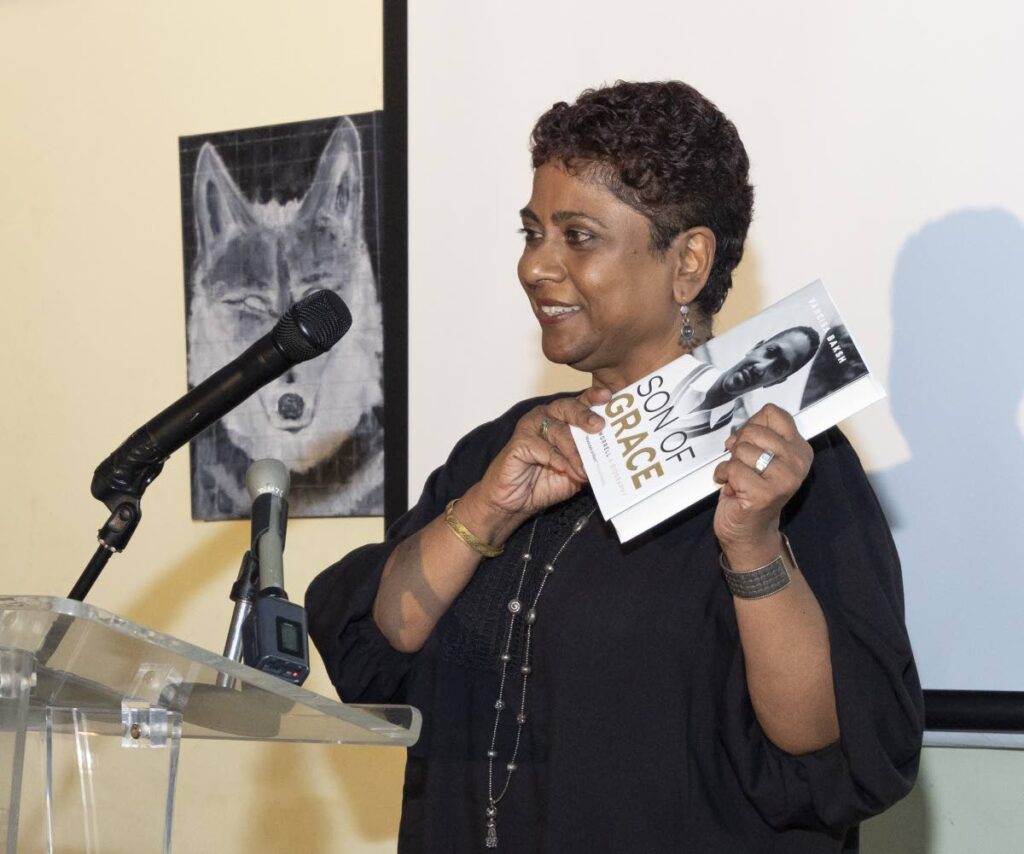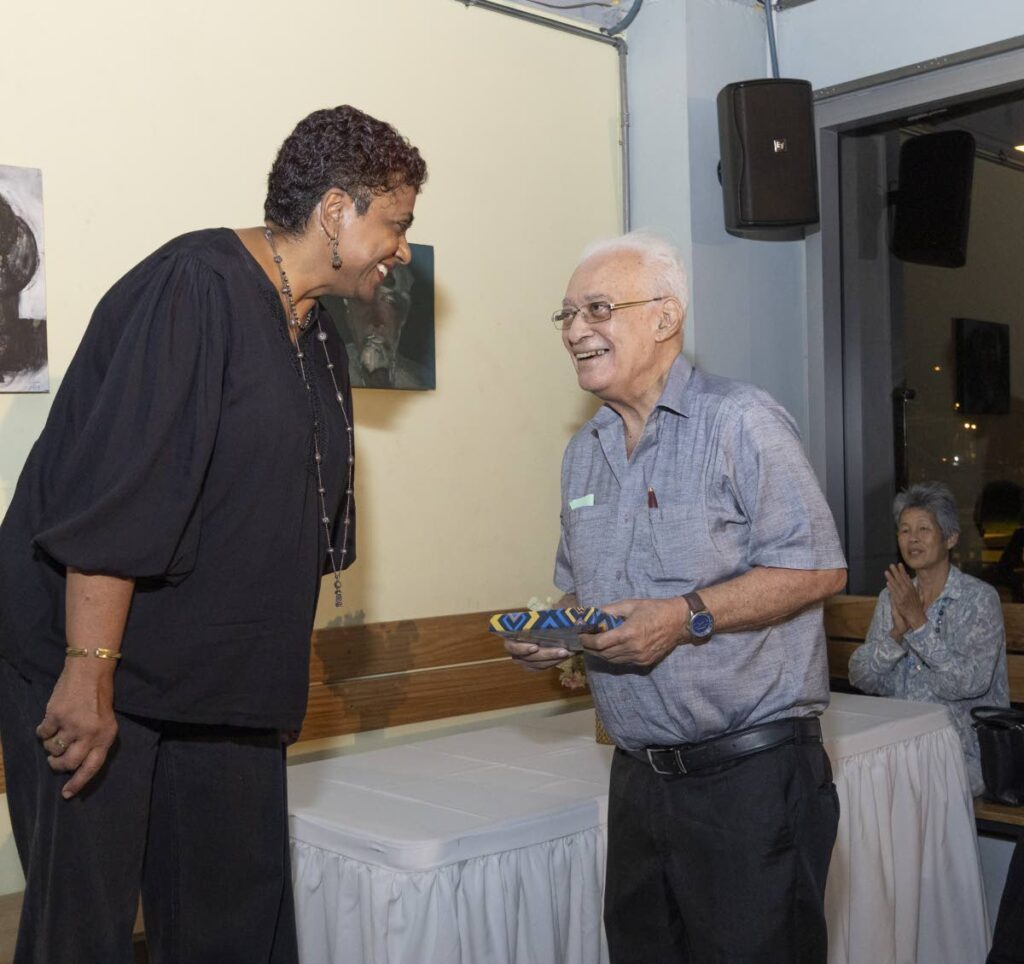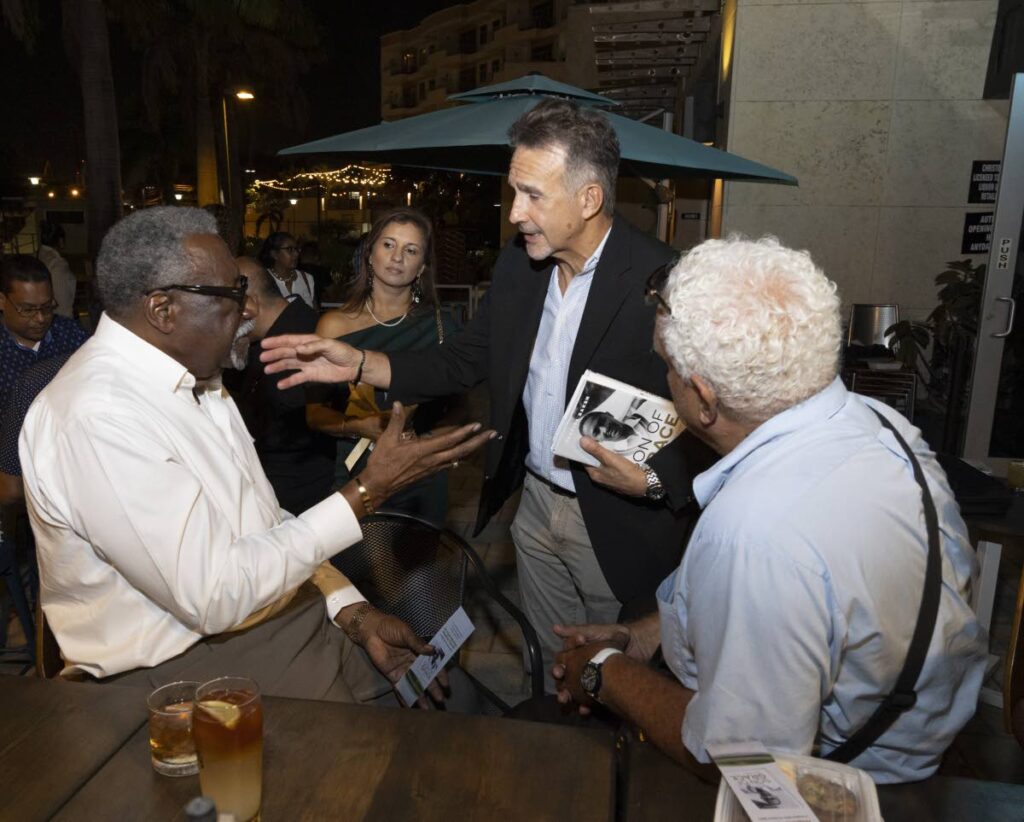Vaneisa Baksh launches bio of Sir Frank Worrell: Son of Grace

HE was described as an enigma, a complex man, a cricket legend, a mentor to many generations and a man of grace – the son of Grace.
Sir Frank Worrell will go down in West Indies and world cricket as one of the greatest figures to ever don the all whites and cross the boundary lines, while he was also the first black man to captain the Caribbean team in a full Test series. However, his contribution to the game of cricket goes well beyond the boundary, and it was only fitting for former journalist and cricket historian Vaneisa Baksh, to pen a 326-page biography in Worrell's honour.
Titled Son of Grace, Baksh's biography, which was dedicated to Prof Arnold Rampersad and Jackie Hinkson, gives insight into the upbringing and circumstances which would have shaped the character of the man who led the Caribbean team in a jaw-dropping tied Test match against Australia at the historic Gabba, Brisbane, in December 1960 – one of only two tied Test matches in cricket history. The spectacular Test finish led to the creation of the Frank Worrell Trophy, which is awarded to the winner of Test series between West Indies and Australia.
On April 23, six months after publishing the biography, Baksh poetically launched the book on World Book Day in the cozy and intimate settings at the Dalai Llama Pub, One Woodbrook Place. to pay homage to one of the regional game's true icons.
Born on August 1, 1924 in St Michael, Barbados, Worrell died at 42 as he succumbed to leukaemia. His impact was felt tremendously, and his passing sent shock waves throughout the cricket world for many people who had grown accustomed to his poise and the diplomacy he displayed both on and off the field.
In 1964, Worrell received knighthood for his contributions to cricket, mere months after playing his last Test match in August 1963 at 39. After his death in March 1967, a memorial was held in his honour at Westminster Abbey in the United Kingdom.

Described as a unifying influence in the Caribbean, Worrell was inducted into the International Cricket Council Hall of Fame in 2009.
At the launch, Baksh, Professor Emerita Bridget Brereton and former West Indies cricketer Bryan Davis all spoke about the tremendous impact Worrell made in his "all too brief life."
"(Son of Grace) was about the man, rather than the great cricketer and Test captain. Although naturally, there was plenty of cricket in the book," Brereton said, during last Tuesday's launch, which was graced with the presence of former West Indies skipper Sir Clive Lloyd, who famously led the Caribbean team to World Cup wins in 1975 and 1979.
Though described as a very private man, Worrell's passion, thoughtfulness and thorough approach made him a standout figure among his peers and a revolutionary leader of men in a time when race barriers influenced the selection of West Indies teams.
In her assessment of the book, Brereton said, "(Vaneisa) weens out some of his experiences as a schoolboy, which she thinks helped to shape his personality. And she also explains the realities of race relations and the rigid social structure and expectations of Barbados in the 1930s and 40s."
Brereton said the biography is particularly strong on Worrell's early days, leading up to his migration from Barbados in his early 20s.
Worrell wore many hats with distinction as he served in the Jamaican senate and also took the responsibility of exposing Caribbean youngsters to the game of cricket through his post as Warden and director of sports at The University of the West Indies' (The UWI) campuses in both Mona, Jamaica and The UWI, St Augustine.
Owing to the stature of the man, and his desire to courageously break down barriers and tension among the varying Caribbean islands, Worrell's passing can be described as untimely in many respects. The West Indies had only just returned from a tour of India in 1967, when Worrell successfully negotiated for the team to stay on tour after an overpacked Eden Garden Stadium in Kolkata led to a riot which threatened the safety of both the players and supporters, even as the rest of the world celebrated New Year's day.
Ever the gentleman and diplomat, Davis recalled how Worrell convinced the Windies team to play out the remainder of their tour. Davis said Worrell felt as though the Caribbean team had an obligation to the Indian supporters to carry on with the beautiful game despite the unsavoury scenes at the famed Eden Gardens venue.
The team was then captained by another legendary West Indian Sir Garfield Sobers, who held the world record for the highest score in Test cricket at that time.
"I remember well, Charlie Griffith and Rohan Kanhai taking off and running outside of the bus and leaving us," said Davis, who said the West Indian team was sent scampering from their dressing room as police officers used tear gas to try and sedate the rampant crowd.
"All of us were inside the bus, and Frank was just telling us to just stay calm and don't worry about a thing. Thankfully, things calmed down and when we drove off to the hotel, Griffith and Kanhai were there. He said 'never desert your team.'
"Sir Frank said it would be insulting to go back home in the middle of the tour as it would sully relations between West Indies and India. It was a lesson in diplomacy."
It was this type of humanitarian approach which won Worrell supporters and admirers all around the world.
Emancipation Day in 2024 will mark 100 years since Worrell's birth, and Baksh sees no better time to share the pioneering captain's legacy to the masses.
"I'm hopeful that what I have done with Son of Grace manages to tell a story that is a West Indian one by a West Indian," who spent over ten years penning the all-encompassing piece which saw her getting access to the files of the West Indies Cricket Board of Control in the 1950s, to go along with Worrell's UWI staff files which detailed his drive to grow cricket across the region – particularly in the smaller islands.

-
"(Worrell) was a mentor across generations. It wasn't just his peers – a lot of young people as well. This nurturing is something that is actually missing and has gone awry in our communities and our societies," who called for more local literature to be introduced in schools to educate the younger generation about their history and culture.
Baksh's desire to document Worrell's life was no easy one, and she wrote the following in a UWI Today publication in May 2017.
"The research so far has been fascinating, as a deeply complex picture of the man emerges," Baksh said. "The problem is that because we have not been good archivists, records are lost and people who knew Sir Frank well are disappearing from our midst."
Brereton gave Baksh two thumbs up for extensive research and the unearthing of primary sources, which included pertinent input from Sir Everton Weekes, Worrell's lifelong friend and a third of the three Ws alongside his Barbados compatriots Sir Clyde Walcott and the enigmatic son of Grace.
"Vaneisa's aim, as I saw it, was to probe the character of an important 20th century West Indian person. It tells a well-rounded story of his all too brief life. And I think she succeeded brilliantly. Though she's a fan of Worrell, she wasn't uncritical."
Queen's Park Cricket Club president Dr Nigel Camacho said Son of Grace will be an essential cog in the annals of West Indies cricket.
"Vaneisa, this book is so important. I don't even think you understand right now. I think history will one day show you how important this book is going to become," said Camacho, who's also a member of the Sir Frank Worrell Memorial Committee.
"I speak in terms of books like CLR James's Beyond the Boundary which is one of the great books in cricket history. I think West Indies cricket is at the crossroads. I think your book plays an important role. It's an important vehicle to help people understand."
Baksh thanked Hinkson and Rampersad for the role they played in the publishing of the biography, and she described them as two of the four pillars of support who helped her to see the journey to the end, alongside John McIlwaine and the late Reginald Dumas. In his January 21, 2024 commentary Knight Stars, Dumas described Son of Grace as "fascinating."
Those in attendance at the launch seemed to run out of superlatives to describe the elegant right-hander whose demeanour grabbed the attention on the cricket strip and along the hallways of The UWI's Mona and St Augustine campuses.
Perhaps, Baksh's final words in the biography sums it up best: "Worrell was a complex individual. He was rarely understood in all his manifestations. But ultimately, he shone as an exemplary figure: a man of generosity and grace. It is tempting to speculate about the role he would have played in West Indian development had his life continued. It can only remain in the realm of wistfulness – that shadowy place of dreams unmade."

Comments
"Vaneisa Baksh launches bio of Sir Frank Worrell: Son of Grace"